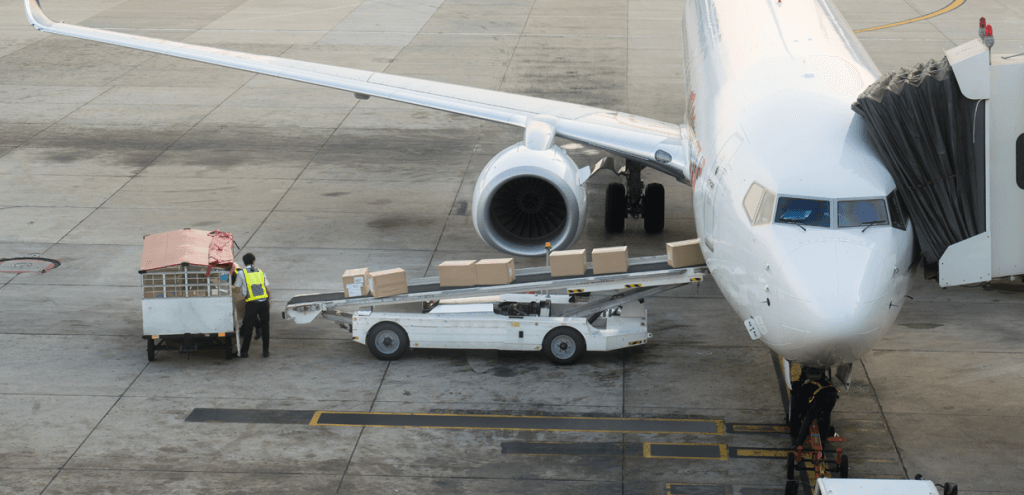Businesses, across the globe, are learning hard and unavoidable lessons about resiliency and agility in the financial world as a result of the Covid-19 pandemic. Stakeholders in the air freight supply chain are navigating similar challenges that require new and innovative solutions to be considered. The air freight industry is learning a variety of lessons and navigating the various challenges posed by economic shutdowns and national lockdowns.
Yet, the positive changes occurring in the industry are as a result of fast-tracking the digitisation, adaptability and collaboration of services and actors in the sector. The future of air freight shipping will be transformed for the better by the digital innovations and supply chain adaptations sweeping the industry. The digital impact on an industry like air freight shipping is unique to others.
The huge amount of coordination, cooperation, monitoring and tracking required for different types of deliveries and shipments affords a prime opportunity for digital innovation. The air freight supply chain barely resembles the industry that existed in 2019, never mind a decade or two ago. Experts have weighed in on the tremendous changes occurring in air freight and most are expecting that there will be no going back to a pre-pandemic ‘normal’.
Everything is changing and those in the sector are not looking back. From customs clearance procedures to tagging and tracking shipments, and online coordination across the globe to digitalising business operations and supply chain management; the pandemic has pushed stakeholders to adapt and evolve their business practices swiftly. The opportunities that have come from technological and digital innovations are rapidly transforming the air freight industry.
Technological and Digital Innovations
The management of large air freight companies used to be a tedious and nerve-wracking process. Tracking shipments, securing orders, utilising land transportation and coordinating with other stakeholders in the supply chain were all far more challenging tasks for managers to successfully navigate.
Today, the air freight industry is automating and digitising a whole host of its processes to make the shipping of goods, to all parts of the world, easier than ever. There are more obvious technological innovations, such as GPS tracking, online communication tools and cloud storage and administration, but the advancements reach much further than that.
The digitalisation and digitisation of difference steps in the air freight supply chain creates more space for technical innovation and operational improvement. Yet, there are still larger innovations on the horizon – better fuel sources, transportation methods and aeroplanes will improve delivery times and worker safety, while helping to combat the impacts of climate change.
Increased Demand for Fast and Affordable Shipping
Despite the obvious difficulties that come with navigating your business during a pandemic, most air freight companies are benefitting from a sharp rise in the demand for air cargo, international shipping, and freight services. In order for air freight supply chain stakeholders to maximise on this rising demand, all involved will need to commit to the collaboration, digitisation, communication and innovation that has flooded the industry, to help strengthen the supply chain.
What has caused this increase in the demand for air shipping? The requirements of consumers are changing due the pandemic. The need for perishable produce, household items, PPE and essential medical supplies felt by governments and communities around the world mean that large air cargo shipments became commonplace in 2020. Never mind the lockdown protocols leaving millions to order their usual comforts from their homes.
Medical and Commercial Shipping During A Pandemic
Getting goods and supplies from one corner of the globe to another is a more complex process during the pandemic. The need for time-sensitive, condition-controlled and reliable shipments of personal, medical and commercial supplies has exploded even further. With the need for carefully controlled transportation of the coronavirus vaccine, air freight forwarders have become an essential part of getting vaccines from warehouses into people’s arms, as safely, dependably and quickly as possible.
The value of transparent, accessible and reliable shipping has never been higher because, unfortunately, lives are at stake. The more efficiently that medical supplies and vaccines are transported around the world, the easier it is to keep populations and people safe. By reducing the amount of damage, delivery error, cold storage malfunctions or lost cargo, the more lifesaving vaccines, medications and PPE are delivered those who need it most (and sooner).
Progressing ‘Because’ of the Pandemic?
The reality is that any individual, company or industry managing to survive and, even, thrive during the pandemic would choose to undo the impact of Covid-19 every time. However, we should not ignore the opportunities and innovations we have watched emerge over the past year. Whether by choice or circumstance, the air freight industry has been transformed into a more technologically advanced, financially resilient, supply-chain cooperative and commercially adaptable sector that could thrive under any condition.
As stated by Suzette Scheepers, CEO of Air Cargo Africa, “we need to work on improved methods throughout the entire supply chain. All shippers, freight forwarders and airlines will have to work together to improve resilience, and at the same time digital advancements and data quality must be a focus to improve transparency, and ultimately traceability.”
Throughout the pandemic, M6T has offered reliable and affordable freight forwarding services that help South Africa’s businesses get their cargo where it needs to go, quickly and safely. For more information about the air freight (and other forwarding) services we offer, contact your nearest M6T branch (Johannesburg and Durban) today.



